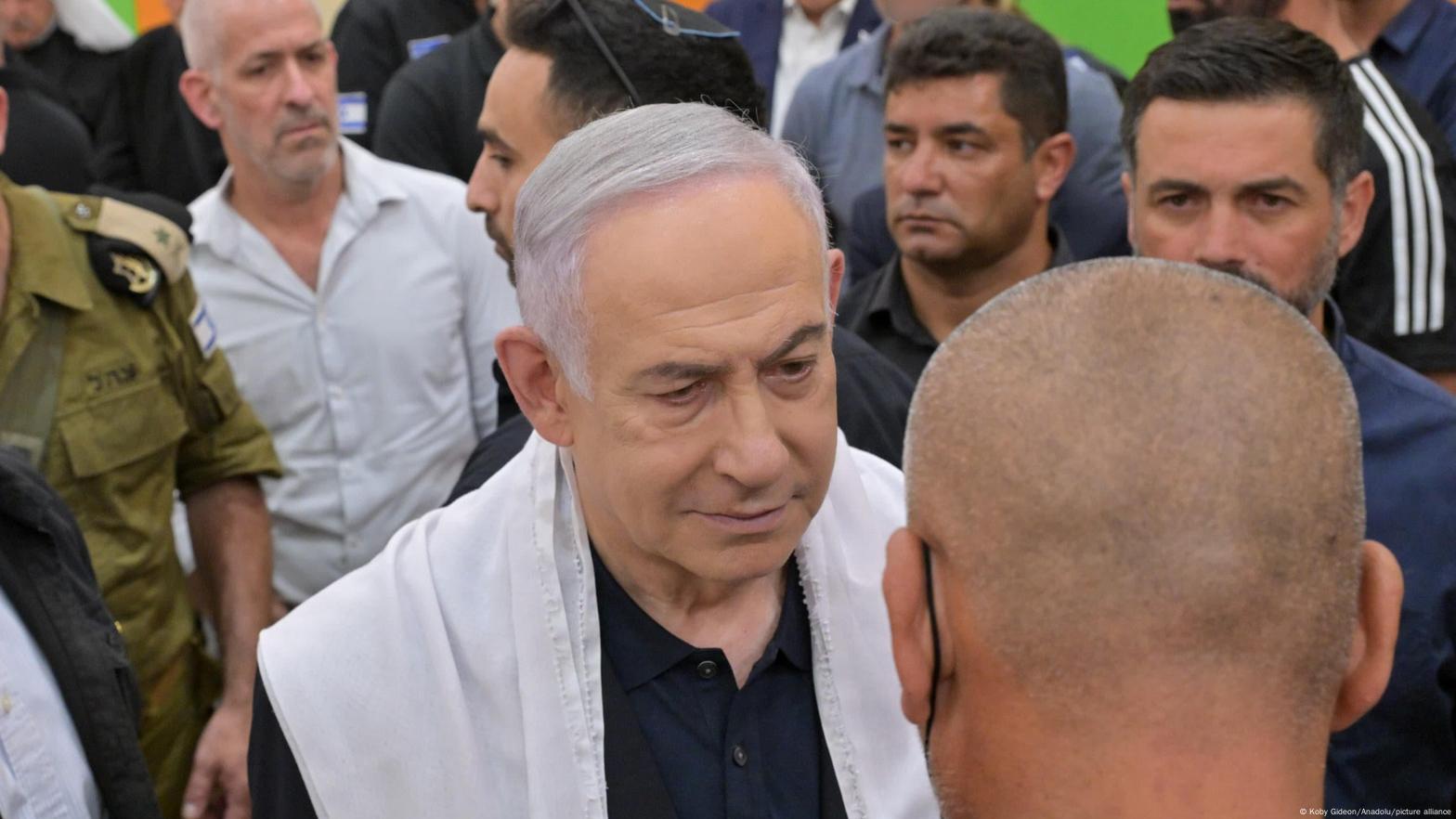
By Deutsche Welle
31 Jul 2024, 19:37 PM EDT
Israeli Prime Minister Benjamin Netanyahu has said his country’s military is ready to face “any scenario,” referring to growing tensions with pro-Iranian militias in the Middle East.
“Citizens of Israel, difficult days lie ahead. Since the attack in Beirut, threats have been heard from all directions. We are prepared for any scenario and will remain united and determined against any threat,” Netanyahu said.
“Israel will exact a heavy price for any aggression against us in any field,” the president said in a televised address after a nearly three-hour meeting with his security cabinet.
Israel is on the lookout for possible military retaliation on its territory following Tuesday’s bombing in Beirut that killed Fuad Shukr, military chief of the Lebanese movement Hezbollah.
This is also the case after the attack in Tehran – which Iran attributes to Israeli forces – that killed Ismail Haniyeh, political leader of the Islamist group Hamas, considered a terrorist organisation by the United States, the European Union and other countries.
“Devastating blows”
Netanyahu also said his country had “dealt devastating blows” to its enemies in recent days, mentioning the death of Hezbollah commander Fuad Shukr but not mentioning the killing of Hamas leader Ismail Haniyeh.
“We killed the right-hand man of Hassan Nasrallah (the leader of Hezbollah) who was directly responsible for a massacre of children,” Netanyahu said in a televised speech, referring to the impact of a rocket on a soccer field on Saturday in an area of the annexed territory of the Golan Heights and which Israel attributed to this Lebanese movement close to Iran.
Who was Ismail Haniya?
BBC reported that Ismail Haniya, the leader of Hamas, was born in 1962 in the Shati refugee camp. In 1997 he was appointed head of the office of Sheikh Ahmed Yassin, founder of the Hamas movement, which strengthened his position in the Islamist movement. Haniya survived an assassination attempt in 2003,
On 6 May 2017, he was elected head of the Hamas Political Bureau by the Islamic Resistance Movement’s Shura Council, succeeding Khaled Mishal. This is considered the highest position in the group’s structure.
He was assassinated in Tehran, Iran while attending the inauguration of Iranian President Masoud Pezeshkian.
Keep reading:
- Who was Hamas leader Ismail Haniya and what does his assassination mean for the group and the war in Gaza?
- Iran threatens Israel to take revenge for killing of Hamas leader
- Lebanon on alert for fear of Israeli response to Golan Heights bombing
